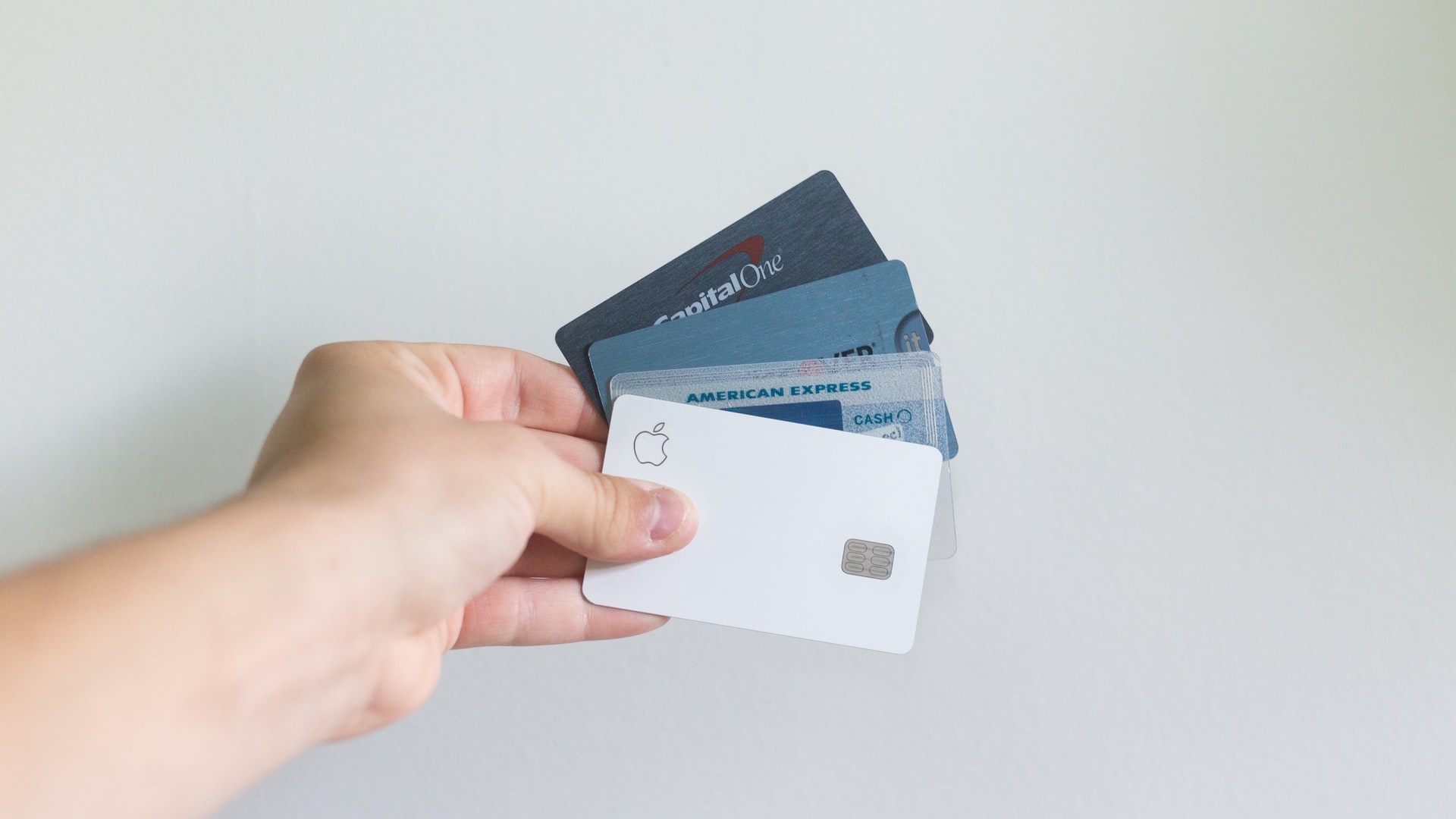Do you need a certain number of credit cards to improve your credit score? Are you wondering if you have enough? Or maybe you have way too many credit cards, and they’re dragging your score down? These are all valid questions to ponder if you’re working towards a good or excellent credit score.
This guide explores the impact credit cards have on your score and how multiple credit cards can be both beneficial and risky. You’ll also discover if there’s an optimal number of credit cards you need to meet your credit goals, along with an effective way to build credit without credit cards.
How Credit Cards Impact Your Credit Score
Credit cards impact your credit score in a few ways. First, you’ll get a hard inquiry on your credit report when you apply for a credit card, which could drop your score by up to five points. The impact is typically short-term, but several hard inquiries in a brief period could tank your score and cause potential lenders and creditors to view you as a credit risk.
Credit cards also affect your payment history. It accounts for the largest percentage of your FICO credit score, so paying on time is essential. Otherwise, your credit score could take a significant hit if you miss a payment and any of your credit card accounts reach 30 or more days past due.
Credit utilization, which accounts for the second-largest component of your credit score, is also directly impacted by credit cards. Your credit utilization rate is the percentage of your credit limit that’s currently in use. You should aim to keep it at 30 percent or lower to avoid damaging your credit score. To illustrate, if you have three credit cards with $500 limits, you shouldn’t spend more than $450 on all your cards combined.
Benefits of Multiple Credit Cards
There are some perks of having multiple credit cards:
- Your credit utilization could decrease if you stop using certain credit cards or pay the balances in full each month before the due date. Some people keep many cards open for this purpose, even if they never use them. You should only consider closing a card if the issuer charges an excessive annual fee.
- You could earn more rewards, including travel points and cash back. Depending on the expense category, consumers can mix and match credit cards for purchases.
- You could take advantage of interest-free promotional offers to make big-ticket purchases or pay off other high-interest credit card debt. (Note: This strategy is only effective if you can repay what you spend before the introductory 0 percent interest period ends). It gives you breathing room to pay off your balance instead of letting interest accumulate.
- You can continue using a credit card if one of your cards is involved with fraudulent activity. You’ll want to freeze a credit card with suspicious activity. While it’s the right choice in that scenario, you’ll be left without a credit card. If you have multiple credit cards, it’s easier to continue with your regular purchasing behavior. If that were your only credit card, you would have to wait for a new card to arrive before you could use a credit card to buy goods and services.
Risks of Multiple Credit Cards
Unfortunately, carrying several credit cards also comes with drawbacks you should consider:
- You may be tempted to make purchases you don’t need or overspend. High credit limits and multiple cards expand your ceiling. On the other hand, debit cardholders can only spend what’s in their checking account.
- You risk accumulating an excessive amount of credit card debt, especially if you don’t stay on top of each account.
- You could stretch your budget too thin if the minimum monthly credit card payments are unaffordable.
- You could spend several hundred or thousands of dollars in interest if you can only afford to pay the minimum on your credit cards each month.
- You could struggle to stay on top of your monthly credit card payments. Payment history makes up 35% of your credit score, and your credit utilization ratio won’t look good either if you fall behind on payments. Your credit score is a big deal since it impacts which loans you get and the interest rates you receive on each loan.
- You could spend a fortune on annual fees. It’s possible to apply for multiple credit cards that do not include annual fees.
- Hard credit checks will have a negative impact on your credit score. Most credit card issuers initiate a hard credit check to get a more detailed look at your credit report. This activity drops your score by a few points and isn’t too bad, but racking up hard credit inquiries can have a more meaningful impact on your credit score.
How Many Credit Cards Is Too Many?
Wondering if you have the right number of credit cards? Or maybe you have far too many open credit card accounts?
The reality is there is no right or wrong answer to this question, and having a lot of cards doesn’t necessarily negatively impact your credit score. Instead, you should focus on using each of your credit cards wisely to build your credit health and make more than the minimum payments. Some people can manage multiple credit cards, but you should consider how many you will use. You might get more rewards with a specific credit card, but if managing five credit cards is too cumbersome, it may not be worth the effort.
Also, evaluate your financial situation to determine how much credit card debt you can comfortably afford to carry each month. Ideally, this figure is equivalent to the amount you can afford to pay in full each month. Paying off your entire credit card debt each month instead of stopping at the minimum payment will save you a lot of money in the long run.
How Many Credit Cards Should You Have to Build Credit?
You can build credit with a single credit card if you pay on time and keep the balance down. Multiple credit cards can be used to meet the same goal if used responsibly. Applying for multiple credit cards isn’t guaranteed to help or hurt your credit score. It’s all in how you use them.
It can be tempting to open a new credit card to access more available credit. However, running up the balance means your credit utilization ratio will be higher, and your credit score will take a hit. Granted, if you open a new credit card and never touch it, you will have a better credit utilization ratio. Consumers who pay their balance in full each month don’t have to open new credit cards for the credit utilization ratio. That’s because their end-of-month ratio will always be 0%. You can’t get better than that with credit utilization, regardless of how many credit card accounts you open.
Ultimately, it’s not a matter of how many credit cards you have but how they’re managed. If you plan to open several credit cards, it is a good idea to space out your credit card applications to avoid racking up too many hard inquiries in a brief period. You should also be wary of applying for credit cards if you plan to apply for a mortgage, auto loan, or another significant financial product in the future.
Other Ways to Help You Build Credit
Credit cards can help you build credit, but they’re not without risk. So here are some other ways to build your credit.
Get Started with a Secured Credit Card
If you can’t get an unsecured credit card because of a bad credit score, you can start with a secured card instead. Secured credit cards are easier to get, and you can improve your score quickly if you make on-time payments. You could then qualify for better cards and build your way to excellent credit.
Consider a Credit Builder Loan
Credit builder loans have the same premise as secured credit cards but take a different route. You can take out a small loan, usually between $500 to $1,000, spread over 6-24 months. The monthly payments will show up on your credit reports and help with your FICO score if you make all loan payments by their due dates. In addition, many credit builder loan providers do not have credit score requirements and won’t run a hard credit check on your report.
Pay Down Your Existing Debt
Paying off your debt will strengthen your payment history, a component that makes up 35% of your credit score. It’s a good idea to repay debt for that reason alone, but you also lower your credit utilization ratio. Credit utilization measures the percentage of funds you have borrowed against your credit limit. For example, if you have a $2,000 credit limit across your cards and borrowed $1,000 against your credit card accounts, you have a 50% credit utilization ratio. That’s not good for your credit score, and high interest rates can make it more difficult to get out of debt.
A 30% credit utilization ratio will help your score, but getting this number below 10% is optimal. That means having a credit balance below $200 if you have a $2,000 credit line.
Review Your Credit Report
Your payment history, loans, and other financial details appear on your credit report. This is the document lenders look at before deciding if you qualify for a loan and what interest rate you will receive. It’s a very important document, and seeing it with your own eyes can provide a better perspective on your strengths and weaknesses.
While you can learn from your credit report, you may encounter mistakes. The major credit bureaus are human and may not update your credit report with recent transactions. Disputing these errors and getting them removed can increase your credit score by a few points. The three major credit bureaus — Experian, Equifax, and TransUnion — let you obtain a free copy of your credit report each year.
You can space out your requests every four months to get a free copy of your credit report more often. If you dispute an error with one of the major credit bureaus, the other bureaus will update their records. So you don’t have to call all three credit bureaus about an error you find on one of your reports.







